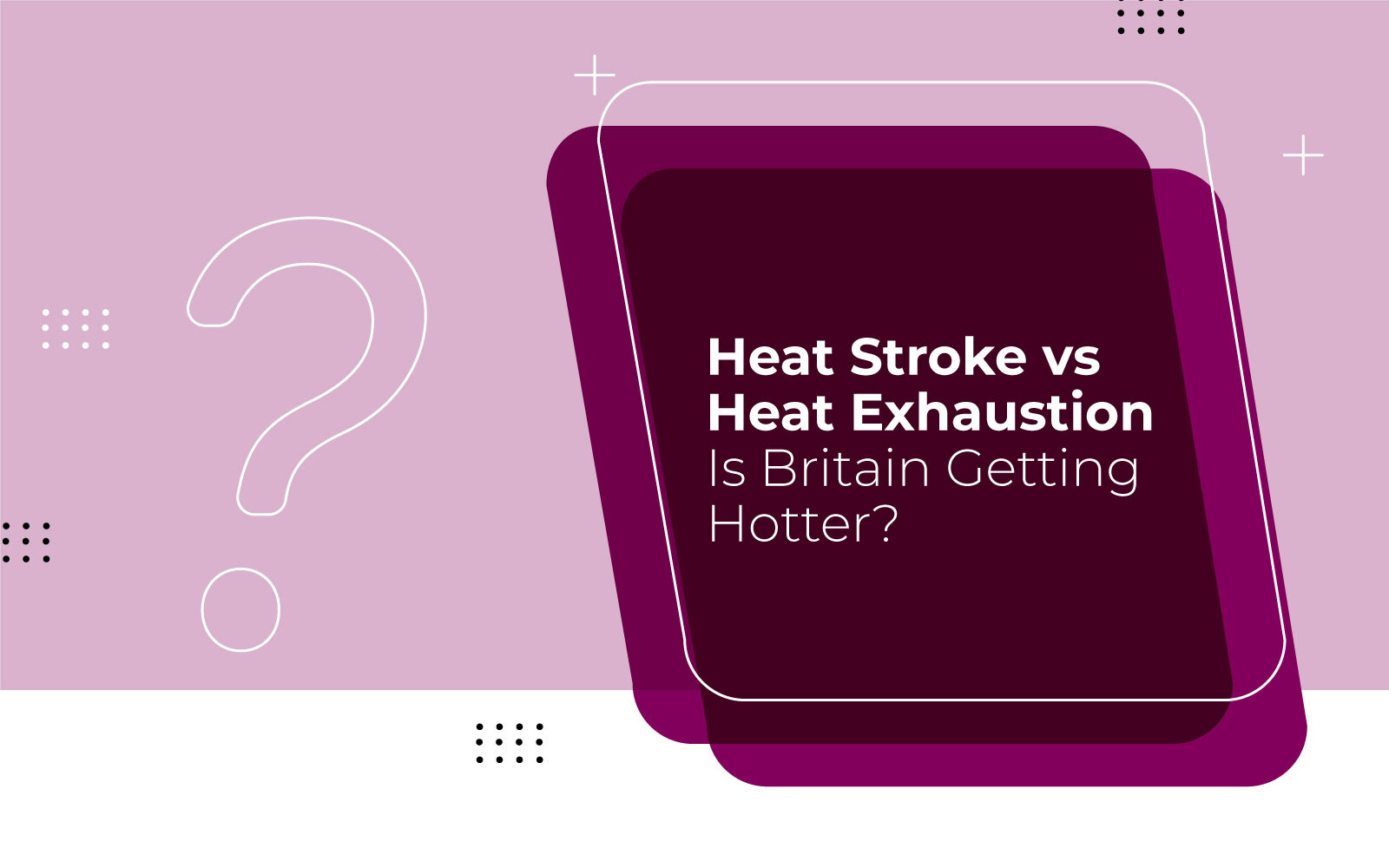
22 Jul 2022
Heat Stroke vs Heat Exhaustion. Is Britain Getting Hotter?
With the temperature in the UK peaking at 40C during July and national emergency being declared following a red extreme heat warning issued by The Met Office, the country came to a grinding halt due to the severe and potentially dangerous heat. Schools closed and people were advised to stay indoors and stay as cool as possible during some of the hottest days the country has ever seen.
The sad fact is, with intense heat comes a number of excess deaths, so it’s imperative that individuals do all they can do keep their body temperate down and to recognize the signs of overheating.
Heat Exhaustion vs Heat Stroke
Heat exhaustion and heat stroke are not the same thing. Heat exhaustion is generally not considered dangerous, and the NHS website lists the symptoms as:
- a headache
- dizziness and confusion
- loss of appetite and feeling sick
- excessive sweating and pale, clammy skin
- cramps in the arms, legs and stomach
- fast breathing or pulse
- a high temperature of 38C or above
- being very thirsty
They also advise that children can become “floppy and sleepy,” and that if someone shows signs of heat exhaustion that they need to be cooled down straight away.
There are a number of ways to cool someone down who may be experiencing heat exhaustion such as moving them into a cooler room, ensuring they are drinking plenty of water or rehydration drinks, cooling their skin down with a cold sponge or water spray, and laying them down and slightly elevating their feet.
If someone doesn’t begin to feel better within 30 minutes, they may have heat stroke which is extremely serious and can be life-threatening.
Symptoms of heat stroke can include:
- confusion
- 40C temperature or higher
- fast breathing and/or fast heartbeat
- absence of sweating even while feeling extremely hot
- agitation
- cramps and muscle spasms
- fainting
Heat stroke is treated in hospital in a number of ways including intravenous fluids and medication. Hospitals will also work to cool the patient down in much the same ways as you would someone with heat exhaustion. They will also monitor vital signs and organs.
Why Can’t our Bodies Handle the Heat?
Our bodies work at 37C or there abouts, and anything a few degrees below or above that will begin to cause significant problems. "When your core temperature gets too hot, everything from organs to enzymes can shut down. Extreme heat can lead to major kidney and heart problems, and even brain damage," says an article by Technology Review. Our bodies are pretty good at telling us when we’re getting too hot, but sometimes getting out of the heat is unavoidable which is where overheating, head exhaustion, and ultimately heat stroke can strike.
More Heat Waves to Come
The BBC recently reported that, “Britain has been slowly getting warmer since the 19th Century. In the past three decades, the UK has become 0.9C warmer. The 10 hottest years since 1884 have all happened since 2002. And none of the coldest years has been recorded this century.” And the culprit? Climate change. "Greenhouse gases, like carbon dioxide, released into Earth's atmosphere in large volumes are trapping the sun's heat, causing the planet to warm. This has brought more extreme weather, including record-breaking high temperatures across the world,” says the BBC.
Unfortunately, we can expect to see more exceptionally hot weather in the years to come, leading to excess deaths globally. Science Media Centre comments, “as overall temperatures rise in the UK due to climate change it’s important to adapt to extreme heat with sustainable cooling options that don’t contribute to making the problem worse.” With the climate crisis set to continue on its current trajectory, It seems we need to find a solution to living in this new, extremely hot, normal, or risk higher numbers of heat-related deaths than ever before.




